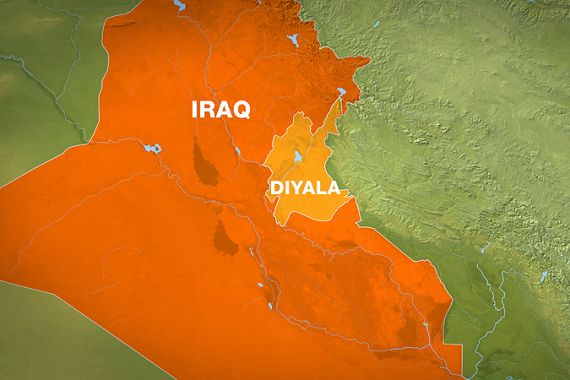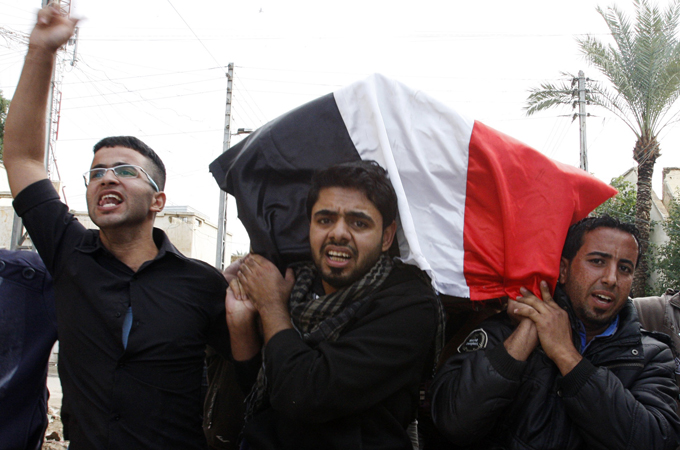Dozens dead in Iraq car bombing
Attack in Diyala province in town populated mostly by Shia Kurds follows day of deadly bombings across the country.

A car bomb ripped through a packed food market north of Baghdad on Thursday, killing 27 people, as Iraq’s death toll for 2013 from a surge in violence nationwide capped 5,800.
The attack occurred on Thursday in Sadiya, 65km northeast of Baghdad, a town in ethnically mixed Diyala province.
The bomb went off at about noon, in a neighbourhood populated mostly by Faylis, or Shia Kurds, the officials said.
Two police officers said witnesses told them that a man parked the truck containing the bomb in the market and asked workers to unload the vegetables before leaving the vehicle. The officers said at least 48 people were also wounded in the attack.
Two medical officials confirmed the causality figures. All officials spoke on condition of anonymity because they were not authorised to release information to the media.
Spate of bombings
The blast in Sadiya struck a day after violence across Iraq, including a spate of bombings in Baghdad , killed 59 people and left more than 100 wounded, the latest in a protracted surge in violence nationwide.
 |
| Mourners carry the coffin of a victim killed by a bomb attack in Baghdad’s al-Bayaa district November 21, 2013 [Reuters] |
“Their capability to conduct attacks has increased,” Deputy National Security Adviser, Safa Hussein, told the AFP new agency in a recent interview, referring to the Islamic State of Iraq and the Levant, an al-Qaeda-linked group.
“By now they understand they can’t realise their ambition in establishing a state. Nor can they defeat the government. But they can work towards their goal in establishing indirect control in some of the areas, and making the state a failed state, which is a very good environment for them to flourish.”
Also on Thursday, officials in Diyala said they had recently found the bodies of a dozen residents snatched by a group of people purporting to be members of the security forces.
The 12 were executed and their bodies had been thrown into a nearby river, reminiscent of targeted killings that were rampant during the worst of Iraq’s sectarian bloodshed in 2006 and 2007.
No group has claimed responsibility for the violence, but Sunni militants linked to Al-Qaeda often carry out such attacks, ostensibly to undermine confidence in the Shiite-led government and security forces.
The rise in unrest has forced Baghdad to appeal for international help in fighting the country’s worst bloodshed since 2008, just months before Iraq’s first parliamentary elections in four years.